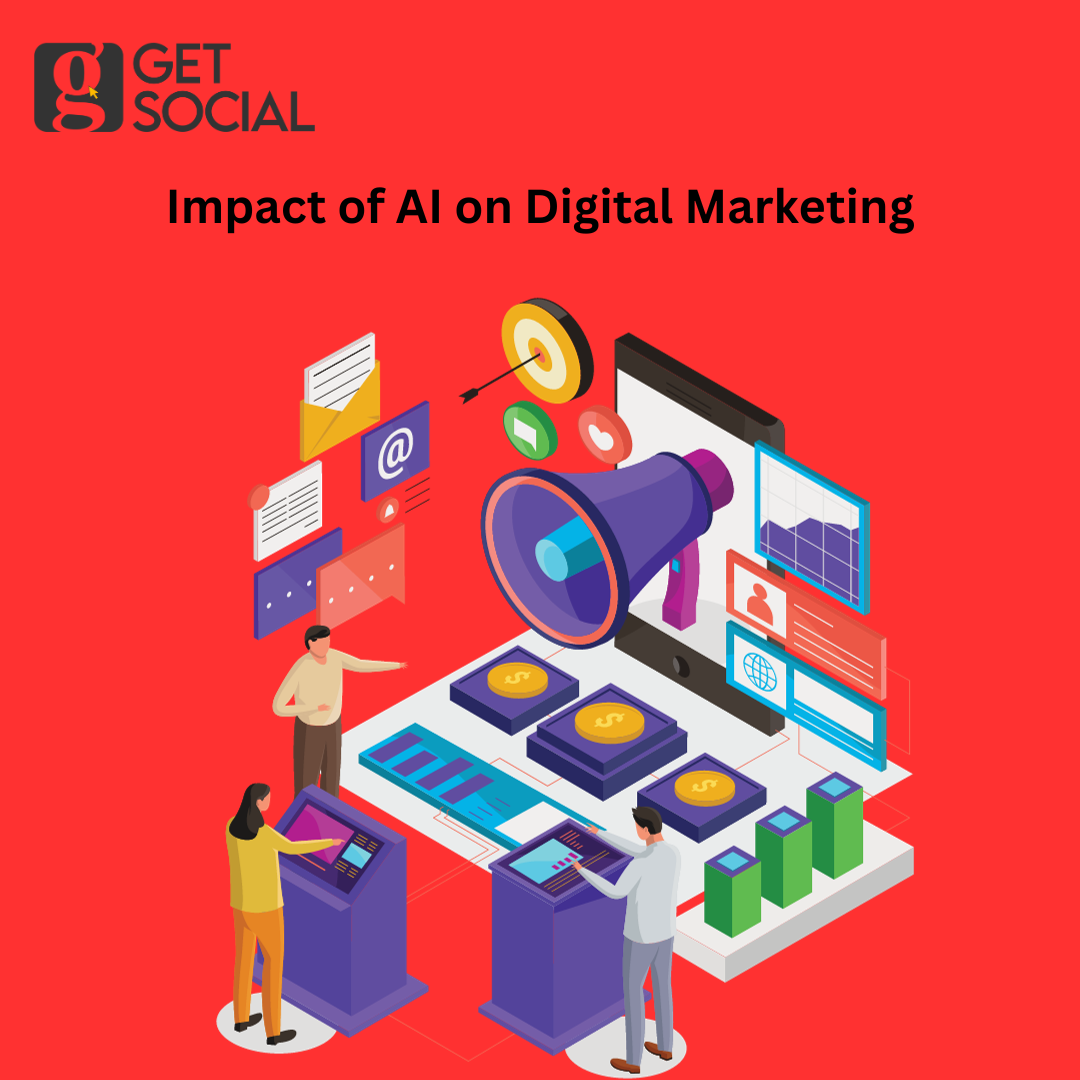Artificial Intelligence (AI) has emerged as a transformative force in the realm of digital marketing, revolutionizing the way businesses connect with their audiences, analyze data, and optimize campaigns.
This technological marvel encompasses a range of applications, from predictive analytics to chatbots and personalization algorithms. In this comprehensive exploration, we delve into the multifaceted impact of AI in digital marketing, examining its influence on customer experience, data analysis, advertising, and beyond.
The Impact of AI on Digital Marketing
Transforming Customer Experience
AI-powered chatbots and virtual assistants have redefined customer interactions. These intelligent systems, driven by natural language processing (NLP), provide instant responses to user queries, enhancing the overall customer experience.
By simulating human-like conversations, chatbots contribute to improved engagement and customer satisfaction.
AI algorithms analyze vast amounts of customer data to deliver personalized experiences. From tailored product recommendations to customized email marketing campaigns, personalization significantly boosts customer engagement.
Machine learning algorithms identify patterns in user behavior, enabling businesses to anticipate needs and preferences.
Data Analysis and Insights
AI’s predictive analytics capabilities empower marketers to forecast future trends and customer behavior. By analyzing historical data, AI algorithms can identify patterns and make accurate predictions, allowing businesses to make informed decisions regarding marketing strategies, inventory management, and more.
The sheer volume of data generated in the digital landscape necessitates advanced processing capabilities.
AI efficiently handles big data, extracting meaningful insights that guide marketing strategies in pune. This enables marketers to identify key trends, understand customer behavior, and optimize campaigns for maximum impact.
Advertising and Content Optimization
Programmatic advertising leverages AI algorithms to automate the buying of ad inventory in real-time. This not only streamlines the advertising process but also ensures that ads are displayed to the most relevant audiences. AI-driven programmatic advertising improves targeting precision, leading to higher conversion rates.
AI’s foray into content creation involves natural language generation (NLG) algorithms that can generate human-like text.
This technology aids marketers in producing high-quality content at scale, whether it be product descriptions, blog posts, or social media updates. Content creation powered by AI saves time and resources while maintaining quality.
Search Engine Optimization (SEO)
Search engines, such as Google, have incorporated AI into their algorithms. Google’s RankBrain, for instance, uses machine learning to better understand user queries and deliver more relevant search results.
Marketers need to adapt their SEO strategies to align with these AI-driven changes, emphasizing user intent and quality content.
The rise of voice-activated devices has propelled the importance of voice search optimization. AI technologies, including natural language understanding and speech recognition, enhance the accuracy of voice search results. Marketers must optimize content for voice search to stay visible in this evolving landscape.
Social Media Marketing
AI-driven sentiment analysis tools analyze social media conversations to gauge public opinion. This invaluable insight allows marketers to understand how their brand is perceived and tailor strategies accordingly. Rapid response to sentiment shifts enables proactive reputation management.
AI plays a role in identifying suitable influencers for marketing campaigns. By analyzing vast datasets, AI algorithms match brands with influencers whose audience aligns with the target demographic. This data-driven approach enhances the effectiveness of influencer marketing strategies.
Ethical Considerations and Challenges
As AI relies on vast datasets, concerns surrounding data privacy and security have become paramount. Marketers must navigate the ethical implications of collecting and utilizing customer data, ensuring compliance with regulations like GDPR. Transparent communication about data usage builds trust with consumers.
The algorithms powering AI systems are not immune to bias, reflecting the biases present in the data used for training.
Marketers need to address and mitigate bias in AI applications to ensure fair and inclusive outcomes. Ongoing monitoring and adjustments are crucial in this regard.
The Future Landscape
The integration of AI with creative processes is an exciting frontier. AI tools that assist in ideation, design, and content creation are emerging.
Marketers should explore how AI-driven creativity can enhance the production of compelling and innovative campaigns.
The field of AI is dynamic, with continuous advancements shaping its capabilities. Marketers must stay abreast of these developments, adapting their strategies to leverage new AI applications and maintain a competitive edge.
Conclusion
The impact of AI on digital marketing is pervasive, touching every facet of the discipline. From enhancing customer experiences through chatbots to revolutionizing data analysis and shaping the future of advertising, AI’s influence is undeniable.
As the digital landscape evolves, marketers must embrace AI technologies responsibly, navigating ethical considerations and staying attuned to the ever-changing possibilities AI presents.
In doing so, they position themselves to harness the full potential of AI and navigate the future of digital marketing with confidence and if you are looking for the best digital marketing agency in pune then get social is the right place for you.





Add a Comment